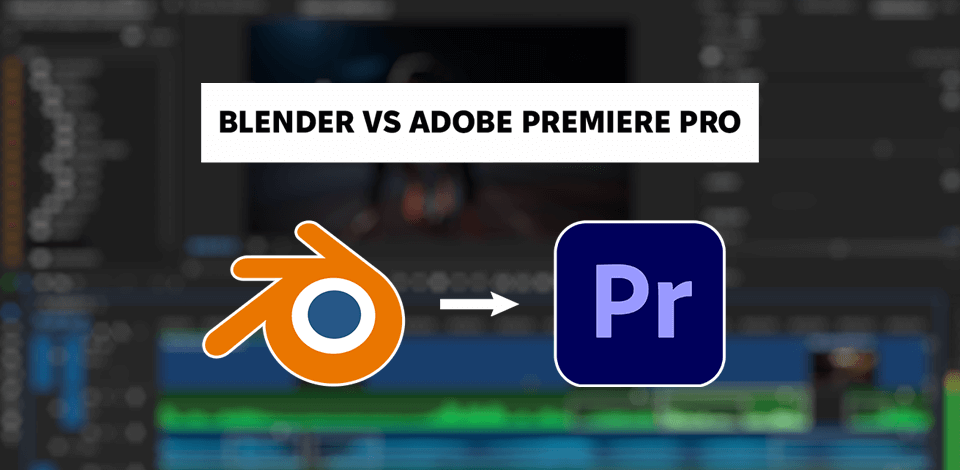
When I last created content for my YouTube channel, I decided to experiment with Blender. I'm already familiar with Premiere Pro and I regularly use it to edit my videos. It is a perfect option for beginner users because it has an intuitive interface and handy AI features.
To handle the animation and visual effects, I opted for Blender. It's clearly geared towards 3D animation and compositing. However, the interface of Blender is very complicated. Even something as basic as adding text to a video was a real challenge for me. I had to spend hours watching tutorials just to grasp the fundamentals.
Blender surely shines in the Adobe Premiere Pro vs Blender competition with its impressive capabilities. Still, Premiere Pro is more intuitive and efficient video editing software for Windows and Maс. It's a better choice for those taking their first steps in the video editing world.
|
|

Blender |

Premiere Pro |
|
Rating |
★★★★☆ 4/5 |
★★★★☆ 4.5/5 |
|
Best For |
Advanced users who focus on 3D animation and digital compositing work
|
Professional-quality film editing
|
|
Free Version |
✔️ |
Free Trial
|
|
Price
|
Free
|
$22.99/mo
|
|
Platforms
|
Windows, Mac, Linux
|
Windows, Mac, Web, iOS, Android
|
|
Ease of Use
|
★★★★☆ 4/5 |
★★★★☆ 4.5/5 |
|
Customer Support
|
★★★★☆ 4/5 |
★★★★☆ 4.5/5 |
|
Pros
|
|
|
|
Cons
|
|
|
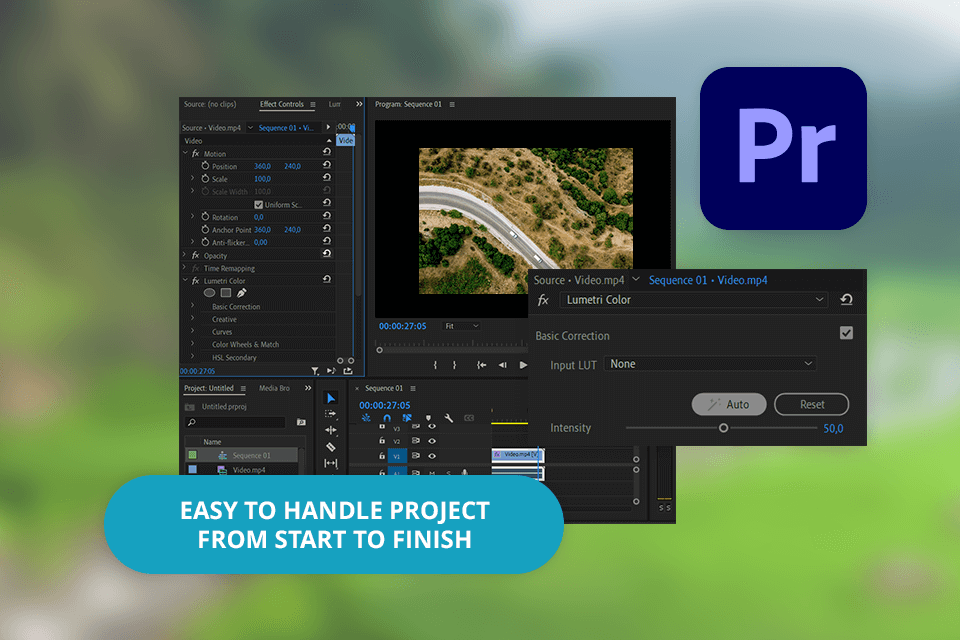
Adobe Premiere Pro has a familiar interface for those accustomed to other Adobe software. Thus, mastering the program won’t take much time.
I appreciate the possibility to tailor workspaces to suit my specific editing needs. This refers to different stages of the working process, including file import, effect applying, and the result output.
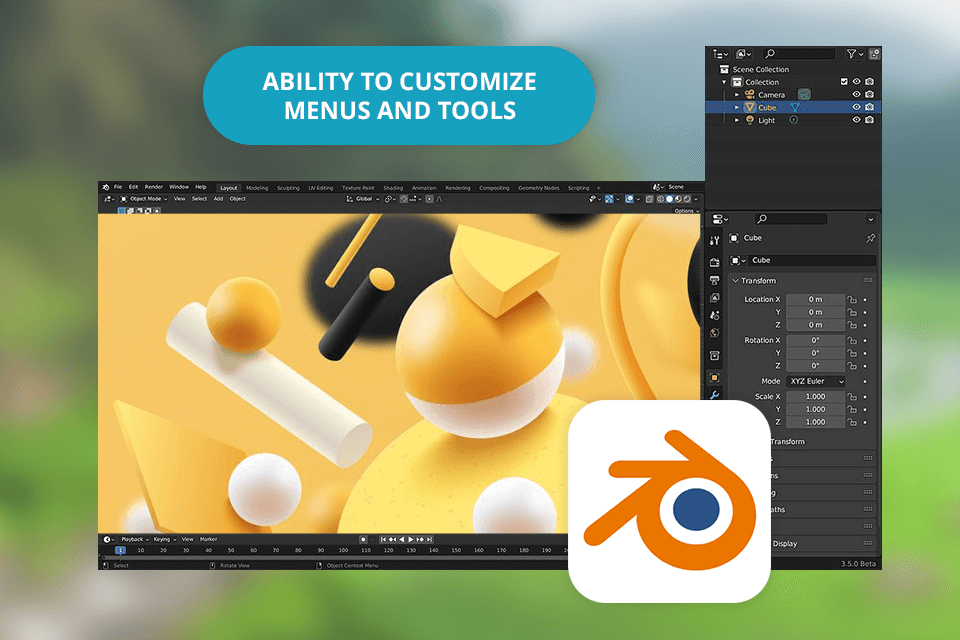
When I decided to download Blender, the interface seemed a bit overwhelming. But the good news is that you can customize the menus and tools to suit your workflow.
After watching a few tutorials, I figured out how to upload videos, edit them, and tweak colors and lighting. If you join the Blender community, you'll find a variety of pre-made presets that can speed up your video editing process.
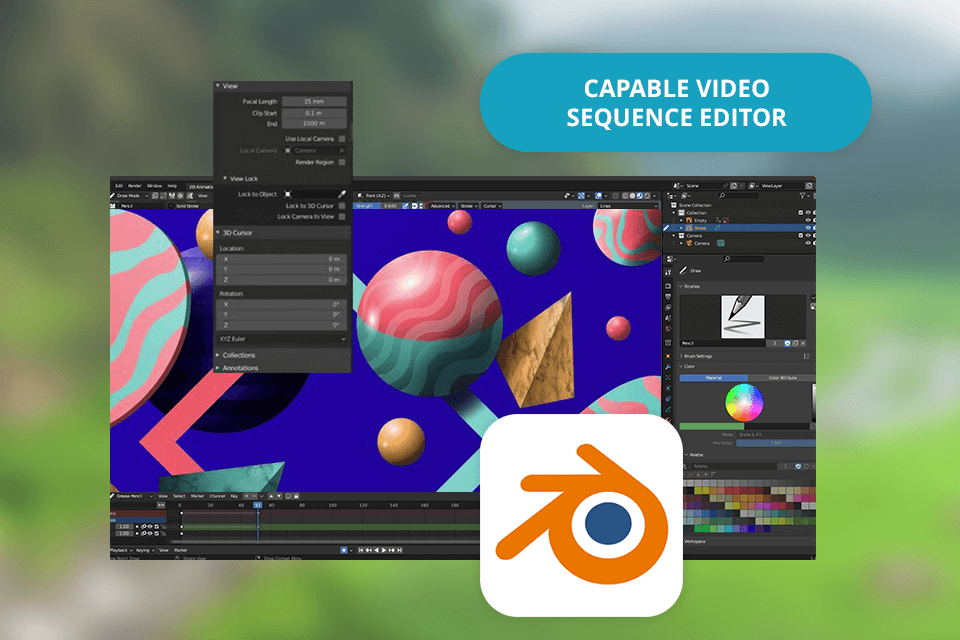
When I compared Blender vs Adobe Premiere Pro in terms of video improvement, I saw that Blender was more feature-rich. It is packed with many visual effects and simulations indispensable for creative video edits.
Though Blender is primarily recognized for its 3D modeling, animation, and rendering capabilities, there are also video sequence (VSE) editing tools. However, when it comes to advanced video editing tasks, the VSE falls short compared to the specialized tools available in Premiere Pro.
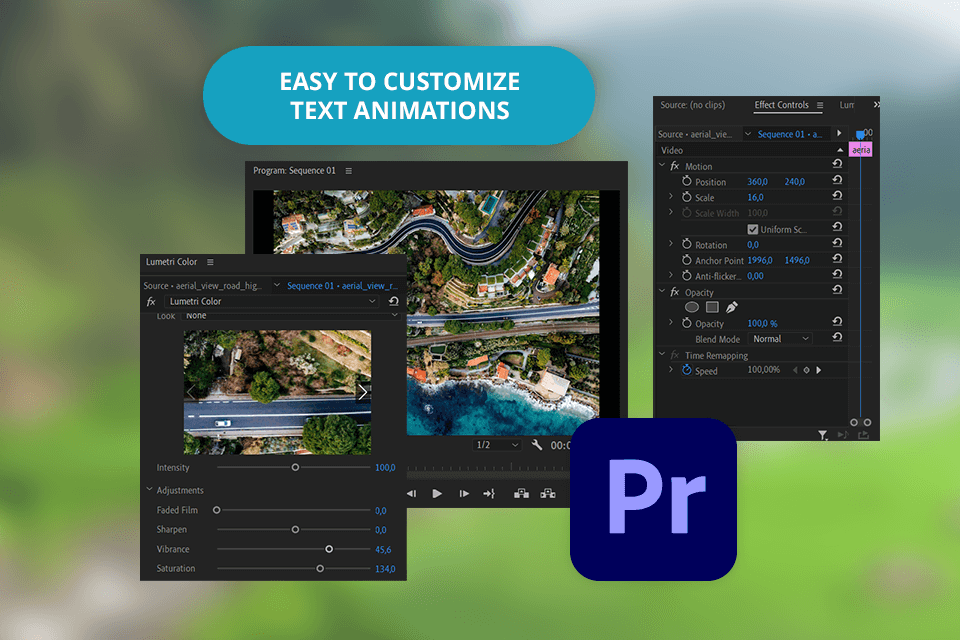
Adobe Premiere Pro outperforms Blender in text editing and color correction. With this program, you can produce high-quality videos faster. There are lots of tools for multi-camera editing, dynamic motion graphics, and more. Another advantage is integration with popular Adobe apps.
To streamline my video editing process, I incorporate motion graphics templates designed in After Effects into Premiere Pro. Thus, I can insert and personalize text animations, to make my videos interesting and unique without mastering complicated tools.
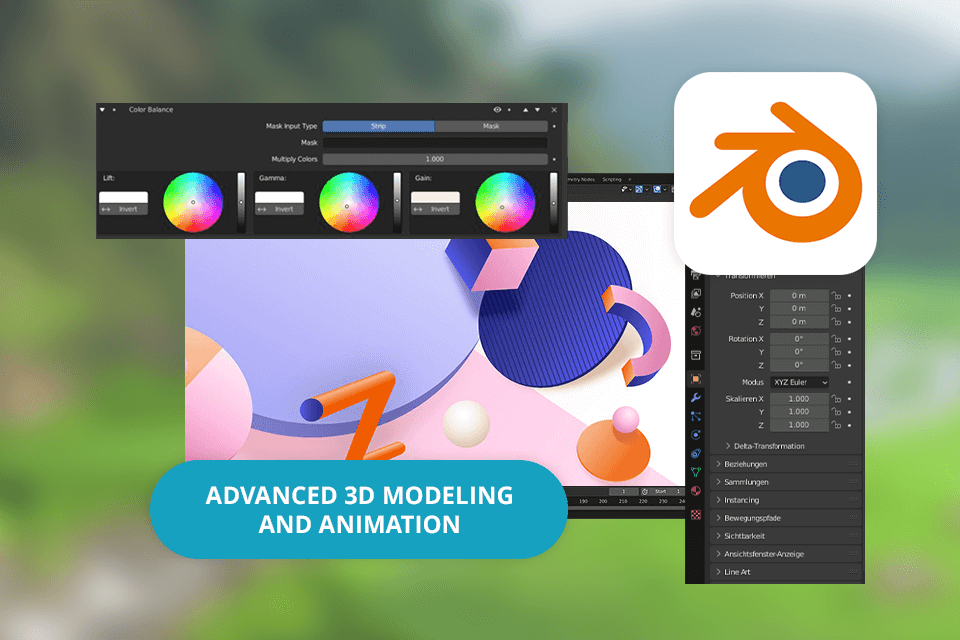
Blender is clearly the superior choice for those interested in the world of 3D. It has an extensive toolkit and a dedicated focus on 3D creation, so you should choose Blender for complex projects. I was impressed by its ability to handle demanding 3D workflows, from bringing characters to life to constructing entire environments and creating mind-blowing visual effects.
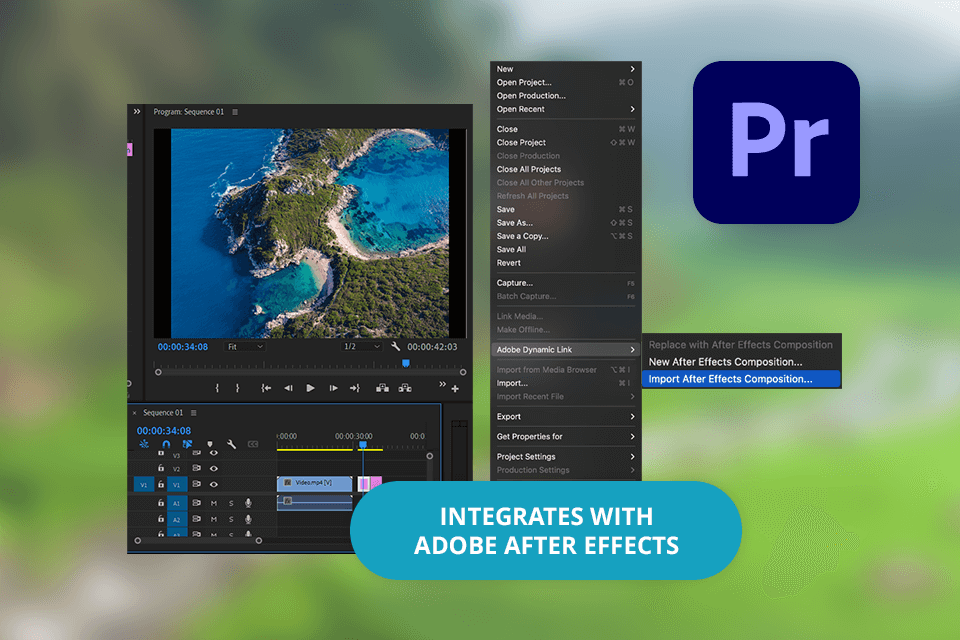
Premiere Pro is primarily designed for video editing. It offers limited 3D functionality. When comparing Blender and After Effects, it becomes clear that After Effects is more suitable for creating and refining videos and motion graphics.
To create beautiful 3D titles, I used Adobe After Effects. I designed the text with depth, shadows, and reflections, then later integrated it into Premiere Pro using a dynamic link. That way, I was able to adjust the position, size, and timing of the 3D titles within the Premiere Pro timeline.
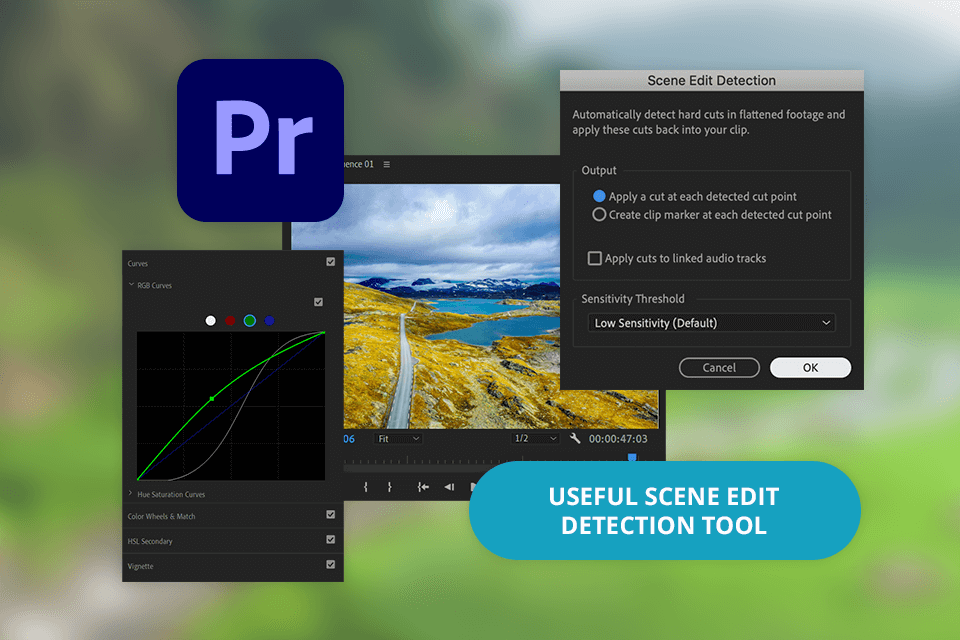
Premiere Pro surpasses its competitor in the Premiere Pro vs Blender batter in terms of AI capabilities. It contains smart auto-reframing, scene detection, and AI audio tagging.
Using these instruments, I managed to complete most repetitive tasks very promptly without sacrificing video quality. I was particularly impressed by the Scene Edit Detection feature. It automatically identifies cuts in footage, which is important when working with pre-edited material.
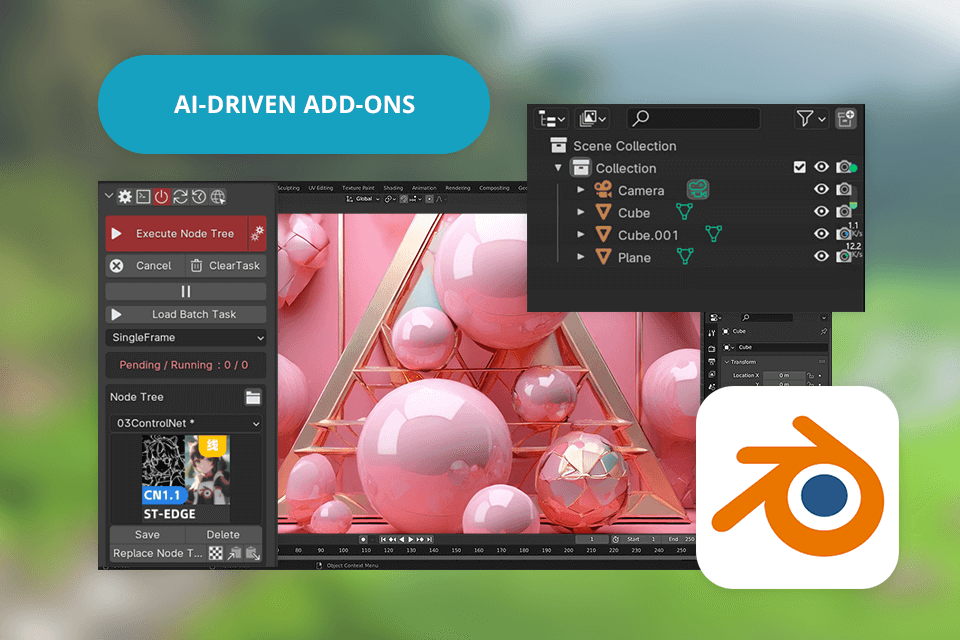
Blender prioritizes manual control and precision in 3D creation. That’s why, it relies less on automated AI features. However, Blender does offer some AI-driven tools through community-developed add-ons or scripts. But these options are often less refined and user-friendly compared to the dedicated AI features built into Premiere Pro.
I have used both programs for different projects. To my mind, Premiere Pro offers a more extensive plugin ecosystem that is necessary for professional video editing. There’s a vast array of plugins available to streamline color correction, audio mastering, and clip organization.
Blender also offers a solid range of add-ons. I've tested plugins like FLIP Fluids and Speedflow. They have streamlined my workflow because I don’t need to make complex effects manually.
The Adobe Premiere Pro community is a hub for industry professionals. It is also a rich source of knowledge and opportunities to connect with others in the video production field. I've interacted with numerous professionals from the film, television, and online video industries.
People from the community actively communicate through Adobe's support forums, professional networks, and social media platforms. Besides, the official Adobe Premiere Pro channel offers a vast library of Adobe Premiere Pro tutorials covering many tools and techniques.
Blender is an open-source program. Such software nature appeals to many users interested in enhancing the software. Users benefit from a vast ecosystem of community-developed plugins, scripts, and add-ons. Moreover, there are lots of free and paid tutorials, courses, and documentation created by the community to ensure that users of all skill levels can find the support they need.
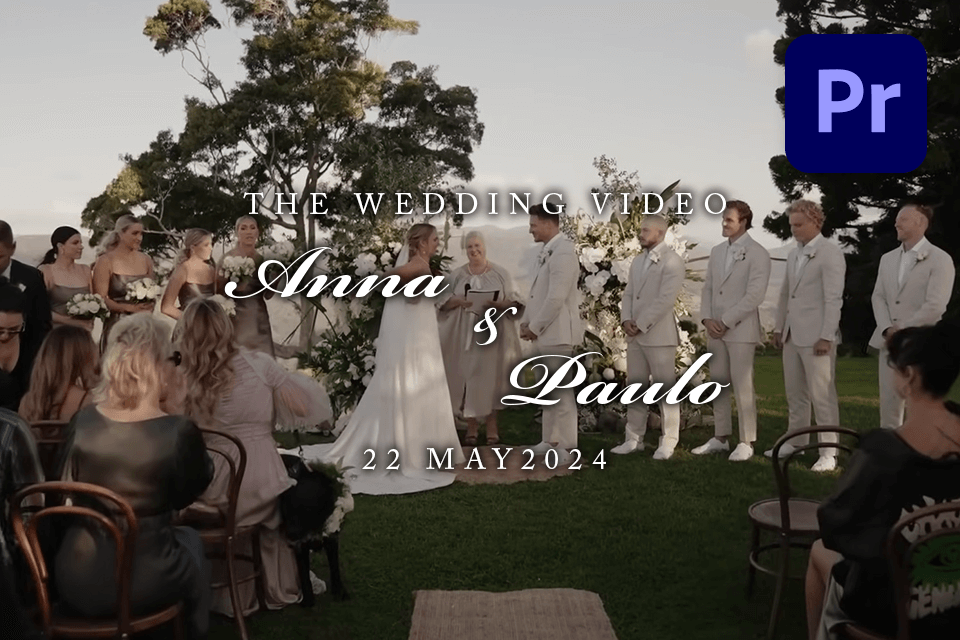
I've tested Blender and Adobe Premiere Pro for making YouTube content. It's clear they're both powerful in their own right. Blender is great when it comes to 3D. it can handle complicated projects with the help of GPU support.

Premiere Pro is perfect for video editing, processing video files with ease and offering smart AI features. Both programs are hungry for system resources, but with the right setup, they can deliver incredible results.
I had to invest in a high-powered computer with a top-of-the-line graphics card to run Blender. Unfortunately, the software isn't always consistent. It's prone to unexpected crashes and glitches. Losing hours of work due to software instability is incredibly frustrating.
|
|

Blender |

Premiere Pro |
|
|
|
|
Free Version
|
✔️ |
Free Trial
|
|
|
|
|
Premium |
Free
|
$22.99/mo
|
|
|
|
|
Best Offer |
Free |
Creative Cloud All Apps |
|
|
|
While Blender undoubtedly has its place in the world of 3D modeling and animation, Premiere Pro is the perfect tool for all video editing needs. Thanks to its color grading features, I can create high-quality content for my YouTube channel. The software has multiple effects and automated features that speed up my workflow.